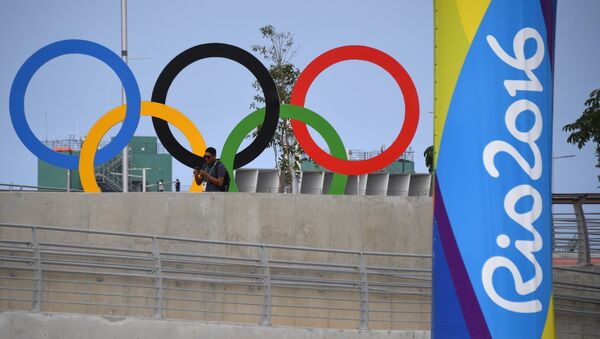It has been that way since the Los Angeles Games in 1984, when Coca Cola and other major corporate sponsors took over the event and its ethos, effecting a transformation consonant with a butterfly metamorphosing into a slug.
Seen in this light the Games become an insult and a moral monster in the eyes of those whose lives are reduced to a daily struggle for survival, a means by which the host country is able to present itself in a favourable light, thus reducing the event to nothing more than a massive and very expensive PR exercise.
Bread and circuses, providing the masses with food and entertainment as a way of distracting them from the reality of their lives and condition, is a term and a concept handed down to us from ancient Rome. It conjures the image of an out of touch and bloated plutocratic elite whose decadence is enjoyed on the backs of the poor.
Though the IOC deserves credit for the formation of a special ‘refugee team’ in Rio, whose entry at the opening ceremony met with the biggest roar of the night from the vast crowd at the famed Maracana Stadium, the fact there is a refugee team at all has to count as an indictment of a world that has both created the refugee crisis and done nowhere near enough to alleviate their plight.
Taken all together, it is a grotesque distortion of an event that traces its lineage all the way back to ancient Greece, where they were first staged around 776 BC in homage to the Greek king of the gods, Zeus. They were subsequently banned by the Roman Emperor, Theodosius I, and remained extinct until reborn in 1896 in Athens, when their modern history begins.
Since then the Olympics have grown not only in terms of the number of sports included but also in their international and political importance depending on the specific political context and period in which they’ve been held. No greater example of this came with the 1936 Berlin Games, hosted by Nazi Germany, at a time when fascism was on the rise, along with resistance to it across Europe. Organized as a showcase to prove Hitler’s and the Nazi theory of the ‘master race’, the Games in Berlin were shrouded in controversy, held at the same time as the persecution of Germany’s Jewish community and the imprisonment of communists, trade unionists, and other dissenting voices in the country had been well underway.
Barcelona was a hotbed of left wing and progressive politics in Spain in the 1930s, representative of everything that fascism was committed to destroying. However just as the Barcelona People’s Olympiad was about to begin the Spanish Civil War erupted, thus ending them before they began. Indeed some of the athletes who’d arrived in Barcelona to take part in the People’s Olympiad instead took up arms to fight for Republican Spain against Franco.
A boycott of the 1980 Moscow Games was staged by the United States in protest at the Soviet intervention in Afghanistan against US supported, funded, and armed Mujahadeen, self-styled holy warriors who paved the way for the emergence of the Taliban and al-Qaeda. The only other countries to support the US boycott were Canada, Japan, and West Germany. In response the Soviet Union along with fourteen other countries boycotted the 1984 Games in Los Angeles.
Which brings us back to the issue of the corruption of the so-called Olympic ethos, previously mentioned, and the hosting of Games that are a celebration not of international sporting competition but of global capitalism and corporations in cities and countries in which millions are living in slums with hardly enough money to be able to feed themselves and their families.
It is why the idea of a People’s Olympiad — begun in 1936 but never completed — is in the 21st century an idea whose time has come.
The views expressed in this article are solely those of the author and do not necessarily reflect the official position of Sputnik.








